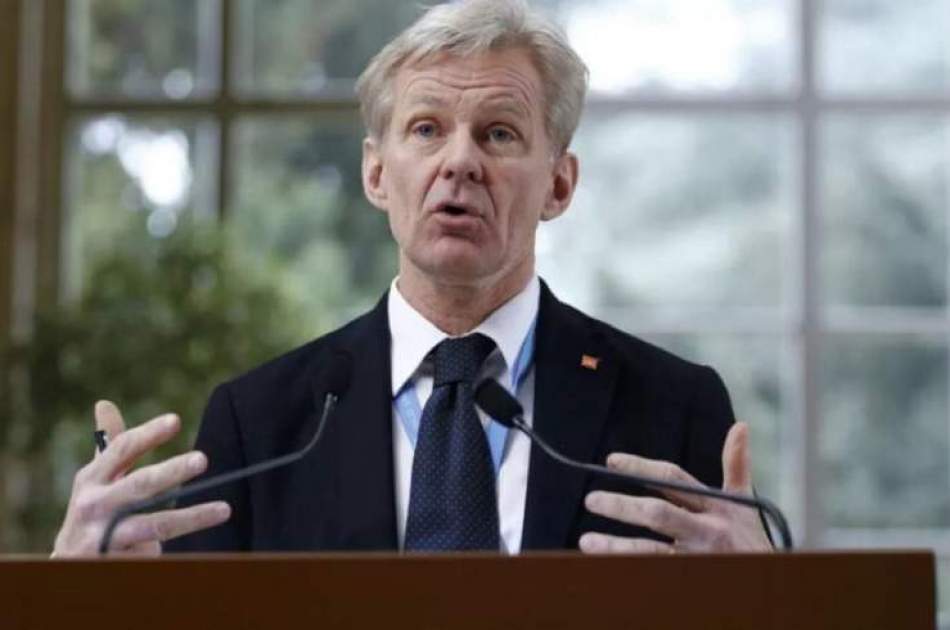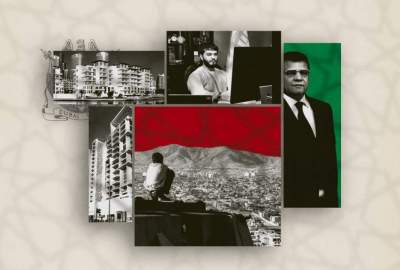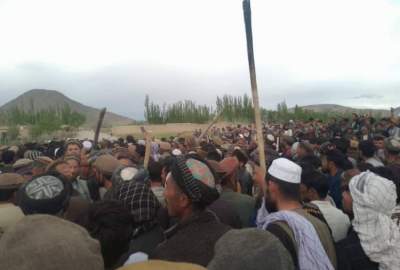The Norwegian Refugee Council has published a report saying that the excessive observance of international sanctions against the Islamic Emirate and "false perceptions" in this matter have created serious obstacles in the field of trade in food and other essential goods for Afghan traders.
Publish dateThursday 6 April 2023 - 14:25
Story Code : 268044
Afghan Voice Agency (AVA) - Kabul: In this report, which was published on Wednesday (April 6), it is stated: "Excessive compliance and misconceptions about the scope of international sanctions create serious obstacles for the Afghan business community, including for Businesses that import and export food and other essential goods.
This report, which was prepared based on interviews with businessmen and other private sector stakeholders in Afghanistan, asked the international community to take effective steps to address the crippled economy of Afghanistan and the unprecedented humanitarian crisis in this country.
Based on this report; Humanitarian aid cannot meet all the needs of millions of Afghan citizens, and therefore specific and serious steps must be taken to address the crippled economy of the country.
"Humanitarian aid alone cannot meet the needs of millions of Afghans who have lost their jobs and have been forced to accept huge debts and sell their assets," said Neil Turner, head of the Norwegian Refugee Council, while presenting the report.
This is despite the fact that since the re-establishment of the Islamic Emirate in August 2021, the international community has adopted the policy of political isolation and governance of Afghanistan, which has fueled the spread of the economic crisis and the reliance of the people on humanitarian aid.
The report also states that the sanctions imposed on the Islamic Emirate have limited access to official banking services, limiting the ability of private businessmen to trade internationally.
The executive director of a large agricultural company in Afghanistan told the producers of this report: "We need to tell companies and banks abroad that Afghanistan itself is not under sanctions and there is no real understanding of this issue among key sectors in the main export and import markets.
Another issue that this report addressed is the money transfer system as the "dominant payment system" used in Afghanistan, which many international companies do not accept.
The Norwegian Refugee Council has suggested that certain agreements should be reached to remove the obstacles that exist against the activities of the private sector in Afghanistan. Also, the banking system in Afghanistan should be supported so that it does not have a negative impact on smaller companies and businesses owned by women.
This is while the United Nations Office for the Coordination of Humanitarian Affairs (OCHA) had previously warned that Afghanistan is facing an unprecedented humanitarian crisis with a very real risk of systemic collapse and humanitarian disaster.
According to the OCHA report, 28.3 million people (two-thirds of Afghanistan's population) will need humanitarian aid to survive this year, as this country is experiencing the third consecutive year of drought and the second year of severe economic recession. The report shows that 17 million people face acute hunger in 2023, including six million at emergency levels of food insecurity, one step away from famine.
Meanwhile, the Central Bank of Afghanistan recently said that individual account holders can withdraw 600 US dollars (50,000 Afghanis) from their bank account after this week, this amount was 400 dollars before.
Also, this bank has set a five percent withdrawal rate from corporate accounts, which cannot exceed 40,000 US dollars in a month, while it used to be 25,000 US dollars.
However, Afghan merchants say that payment instructions are blocked for any international banking transaction that mentions Afghanistan, even for food shipments through the United Nations.
This report, which was prepared based on interviews with businessmen and other private sector stakeholders in Afghanistan, asked the international community to take effective steps to address the crippled economy of Afghanistan and the unprecedented humanitarian crisis in this country.
Based on this report; Humanitarian aid cannot meet all the needs of millions of Afghan citizens, and therefore specific and serious steps must be taken to address the crippled economy of the country.
"Humanitarian aid alone cannot meet the needs of millions of Afghans who have lost their jobs and have been forced to accept huge debts and sell their assets," said Neil Turner, head of the Norwegian Refugee Council, while presenting the report.
This is despite the fact that since the re-establishment of the Islamic Emirate in August 2021, the international community has adopted the policy of political isolation and governance of Afghanistan, which has fueled the spread of the economic crisis and the reliance of the people on humanitarian aid.
The report also states that the sanctions imposed on the Islamic Emirate have limited access to official banking services, limiting the ability of private businessmen to trade internationally.
The executive director of a large agricultural company in Afghanistan told the producers of this report: "We need to tell companies and banks abroad that Afghanistan itself is not under sanctions and there is no real understanding of this issue among key sectors in the main export and import markets.
Another issue that this report addressed is the money transfer system as the "dominant payment system" used in Afghanistan, which many international companies do not accept.
The Norwegian Refugee Council has suggested that certain agreements should be reached to remove the obstacles that exist against the activities of the private sector in Afghanistan. Also, the banking system in Afghanistan should be supported so that it does not have a negative impact on smaller companies and businesses owned by women.
This is while the United Nations Office for the Coordination of Humanitarian Affairs (OCHA) had previously warned that Afghanistan is facing an unprecedented humanitarian crisis with a very real risk of systemic collapse and humanitarian disaster.
According to the OCHA report, 28.3 million people (two-thirds of Afghanistan's population) will need humanitarian aid to survive this year, as this country is experiencing the third consecutive year of drought and the second year of severe economic recession. The report shows that 17 million people face acute hunger in 2023, including six million at emergency levels of food insecurity, one step away from famine.
Meanwhile, the Central Bank of Afghanistan recently said that individual account holders can withdraw 600 US dollars (50,000 Afghanis) from their bank account after this week, this amount was 400 dollars before.
Also, this bank has set a five percent withdrawal rate from corporate accounts, which cannot exceed 40,000 US dollars in a month, while it used to be 25,000 US dollars.
However, Afghan merchants say that payment instructions are blocked for any international banking transaction that mentions Afghanistan, even for food shipments through the United Nations.
avapress.com/vdcdoj0xoyt09z6.em2y.html
Tags
Top hits







